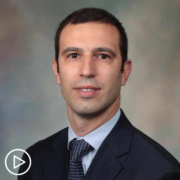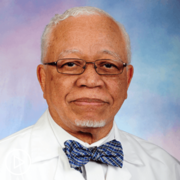RuthAnn Gordon: Why Is It Important for You to Empower Patients?
RuthAnn Gordon: Why Is It Important for You to Empower Patients? from Patient Empowerment Network on Vimeo.
How can patients be empowered, and why is it an important part of their care? Director of Clinical Trials Nursing RuthAnn Gordon from Memorial Sloan Kettering Cancer Center shares her expert perspective.
See More from Empowering Providers to Empower Patients (EPEP)
Related Resources:

|

|

Dr. Isaac Powell: Why Is It Important for You to Empower Patients? |
Transcript:
RuthAnn Gordon:
Thank you for the question. I think one of the most important things we can do to empower our patients is to educate them. They really need to be prepared for what they can expect when they’re on their journey and also what their responsibilities are and what the clinician’s responsibilities are. What are going to be the expectations? And outlining that in a format that they’re comfortable with so considering what their literacy is, how they like to learn is important in those empowering conversations. Learning about the patient, building that relationship with them so you understand their learning styles, so you understand what they might need more direction on or more education on is really important.
And the reason why all of those things are important is because we want our patients to feel like they’re being heard. We want them to feel like no matter how big or small the question that they should ask it, that we are in a place to support them and help them and that we want to hear their questions. And we want to educate them. And we want them to feel like they have the best support that they need, the most appropriate support that they need in order to be educated and empowered and informed and a part of the process.
It’s important to make your patient a part of the process. It is we are in this, we are doing this. What do you need? What can I do to help? And really giving them that confidence. You understand what their needs are, and you want them to speak up and that it is safe to speak up, and that your questions will be heard here. I think that makes patients feel empowered, and it also gives them more self-confidence. And with confidence comes so many other healing things. And so I think it’s really important to help them with their processing with everything that’s going on is to empower them and educate them. And educating them will empower them.










